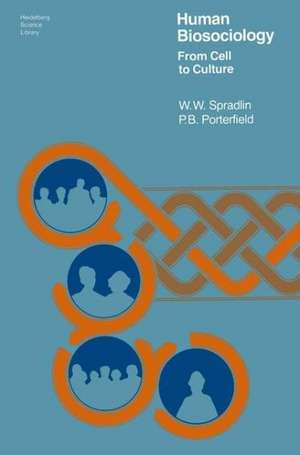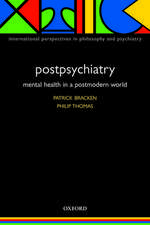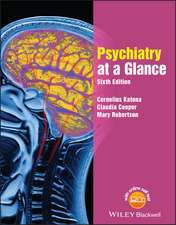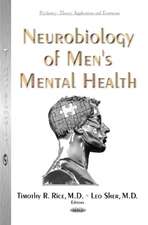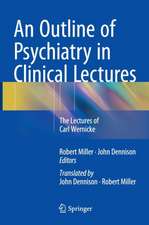Human Biosociology: From Cell to Culture: Heidelberg Science Library
Autor W. W. Spradlin, P. B. Porterfielden Limba Engleză Paperback – 12 mar 1979
Din seria Heidelberg Science Library
- 18%
 Preț: 877.25 lei
Preț: 877.25 lei - 20%
 Preț: 324.31 lei
Preț: 324.31 lei - 15%
 Preț: 529.28 lei
Preț: 529.28 lei -
 Preț: 381.43 lei
Preț: 381.43 lei -
 Preț: 378.92 lei
Preț: 378.92 lei -
 Preț: 379.48 lei
Preț: 379.48 lei - 5%
 Preț: 365.82 lei
Preț: 365.82 lei - 20%
 Preț: 440.78 lei
Preț: 440.78 lei - 15%
 Preț: 635.80 lei
Preț: 635.80 lei - 5%
 Preț: 361.23 lei
Preț: 361.23 lei - 20%
 Preț: 322.68 lei
Preț: 322.68 lei -
 Preț: 384.86 lei
Preț: 384.86 lei - 5%
 Preț: 359.78 lei
Preț: 359.78 lei - 5%
 Preț: 361.23 lei
Preț: 361.23 lei -
 Preț: 383.33 lei
Preț: 383.33 lei -
 Preț: 380.25 lei
Preț: 380.25 lei -
 Preț: 384.48 lei
Preț: 384.48 lei -
 Preț: 385.62 lei
Preț: 385.62 lei - 15%
 Preț: 632.37 lei
Preț: 632.37 lei -
 Preț: 389.70 lei
Preț: 389.70 lei -
 Preț: 379.09 lei
Preț: 379.09 lei - 15%
 Preț: 580.46 lei
Preț: 580.46 lei -
 Preț: 381.81 lei
Preț: 381.81 lei
Preț: 385.08 lei
Nou
Puncte Express: 578
Preț estimativ în valută:
73.69€ • 80.02$ • 61.90£
73.69€ • 80.02$ • 61.90£
Carte tipărită la comandă
Livrare economică 23 aprilie-07 mai
Preluare comenzi: 021 569.72.76
Specificații
ISBN-13: 9780387903507
ISBN-10: 038790350X
Pagini: 228
Ilustrații: XVI, 228 p.
Dimensiuni: 155 x 235 x 13 mm
Greutate: 0.35 kg
Editura: Springer
Colecția Springer
Seria Heidelberg Science Library
Locul publicării:New York, NY, United States
ISBN-10: 038790350X
Pagini: 228
Ilustrații: XVI, 228 p.
Dimensiuni: 155 x 235 x 13 mm
Greutate: 0.35 kg
Editura: Springer
Colecția Springer
Seria Heidelberg Science Library
Locul publicării:New York, NY, United States
Public țintă
ResearchCuprins
1 Basic Concepts.- Man’s Concept of the Universe.- A Systems Approach.- Relationships Biased by Sensory Organs.- Relationships as Entities.- Influence of Nuclear Physics.- The Environment.- The Individual as a Series of Relationships.- Living Systems.- References.- Suggested Readings.- Suggested Questions.- 2 Biological Evolution and Systems Theory.- Evolution and Information Flow.- Centralization.- Cybernetic Quality of All Systems.- Tendency to Concretize Systems.- Relationship of All Cells and Systems in the Central Nervous System.- The Human Mind as a Continuum of Related Information.- The Bimodal System of Data Processing.- References.- Suggested Readings.- Suggested Questions.- 3 Bimodal Coding.- Cybernetic Movement of Information.- Division of Coding Activity of the Central Nervous System.- Elaborate Digital Format in Man.- Attempts to Localize Central Nervous System Functions.- Perception of Stimuli and the Bimodal Model.- Analog-to-Digital Ratio.- Efficiency of Analog-to-Digital Conversion.- References.- Suggested Readings.- Suggested Questions.- 4 Digital Coding and the Acquisition of Language.- Development of Human Symbolic Operations.- Nonhuman Communication.- Development of Linguistic Skills in Children.- Evolution of Language.- Symbolic Speech and the Ability to Predict.- The Use of Words—A Group Phenomenon.- Alienated Dependency of Man.- Transmission of Information.- Importance of Both Analog and Digital Data-Processing in Human Communication.- Summary.- References.- Suggested Readings.- Suggested Questions.- 5 Evolution of the Self System.- Self-Differentiation through the Evolutionary Process.- Self, Ego, Identity, and Personality.- Comparison of Theories.- The Search for Information to Reify the Self.- Individual Data Selection.- Consequences ofDifferentiation.- Conclusion.- References.- Suggested Questions.- 6 Interpersonal Relationships and Behavioral Homeostasis.- Development and Maintenance of a Self.- The Group or Social Self.- Self and the Environment.- Data Processing and Role Theory.- Need for Predictability and Control.- Interpersonal Skills in a Behavioral Economy.- References.- Suggested Readings.- Suggested Questions.- 7 Roles and Counterroles within the Family.- Advantages of Biosocial Approach.- Biasing Information.- Communicating Frustration.- Competition for Control of the Family System.- Security and Acceptance.- Adding Members to a Family System.- Human Behavioral Patterns Colored by Digital Operation.- Triangulation.- Complexity of Family Systems.- References.- Suggested Readings.- Suggested Questions.- 8 Stress and Life Styles.- Man as a Biologic System.- Life Styles.- Search for Autonomy.- Shifts in Self-Concept.- Adjustments to Stress.- Learning to Use Others.- Attempts to Maintain Integrity.- Escape Techniques That Decrease Tension.- Escape Techniques That Increase Tension.- Use of Property.- Other Common Adjustment Techniques.- Reference.- Suggested Readings.- Suggested Questions.- 9 Dissynchronous Behavior.- Response to Injury.- Continual Exchange of Data.- Analog to Digital Impasse.- Dependency on Group Interaction.- Attempts to Avoid Expectations.- Classification of Behavioral Patterns.- Inability to Accept Help.- Effects of Institutionalization.- Effect of Social Deprivation.- Depression, Anxiety, and Anger.- Use of Dissynchronous Self System by Family and Community.- Suicide as a Response to Expectations.- Differentiation.- Loneliness.- References.- Suggested Readings.- Suggested Questions.- 10 Synchronizing Relationships.- Patterns of Relationships.- A Systems Approach to Disease, Illness, Normality, and Abnormality.- Synchronizing Techniques.- Forming Synchronizing Relationships.- Methods of Evaluation.- Deciding What to Do.- The Individual as a Group.- Importance of Mutual Understanding.- The Need to Help Others or to Seek Help.- Effects of Therapist Assuming Responsibility.- Recognizing the Needs of the Therapist.- Individual, Family, and Group Therapy.- Elevated Emotional States.- Therapy as a Learning Paradigm.- References.- Suggested Readings.- Suggested Questions.- 11 Cultural Coding Systems.- I Human Group Dependency.- Importance of Digital Operation.- Dangers of Group Specialization.- Rules, Ethics, Morals, Laws.- Religious Systems.- Scientific Systems.- Efficiency of Language.- Effects of Technology on Data Processing.- Social Responsibility and Legal Systems.- Educational Systems.- Behavioral Patterns in Societies.- Social Self Systems.- Summary.- Reference.- Suggested Readings.- Suggested Questions.- 12 Evolution of a Systems Theory of Self and Society.- Direction of Thought Toward Systems.- Early Philosophers and the Scientific Method.- Philosophers Concerned with Man and Nature.- Impact of the Work of Darwin.- Intrapersonal Theorists.- Social Scientists.- Two Major Theoretical Orientations.- Pragmatic, Behaviorist, and Descriptive Theorists.- Interpersonal Theorists.- Family and Communication Theorists.- Physicists (Relationships and Relativity).- Neural Substrate and Information Theorists.- Learning Theorists.- Linguists.- Mathematicians.- Contributors in Other Fields.- Systems Theorists.- References.- Suggested Readings.
